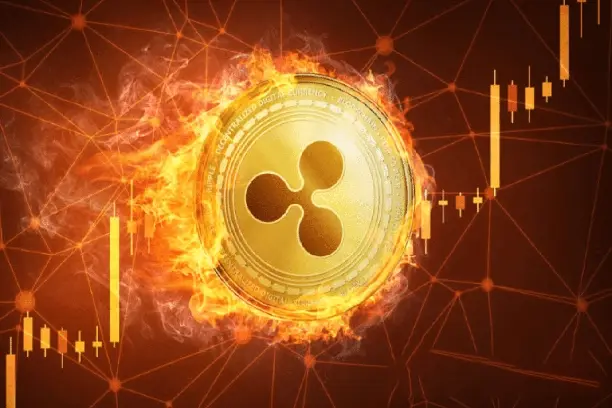Bitcoin and Ether are the two main players in the cryptocurrency market, and they occupy a crucial position in the digital currency ecosystem. As the market develops, the investment value and future prospects of both have become the focus of investors' attention. In this article, we will analyze the future development potential of Bitcoin and Ether, and explain the differences between them in terms of technological innovation, market demand, and investment risks, to provide investors with a comprehensive investment comparison reference.

Bitcoin: The Status and Value of Digital Gold
Since its inception in 2009, Bitcoin has been seen as a pioneer of digital currencies, with its core positioning as "digital gold". Bitcoin's total number of coins is capped at 21 million, a scarcity that makes it highly value-protective over the long term, especially in the face of global currency devaluation pressures, and more and more investors see it as a safe-haven asset. Bitcoin's decentralization, transparency and security have also laid the groundwork for its widespread acceptance around the world.
From an investment value perspective, Bitcoin is suitable for long-term holding as an inflation hedge. The price of bitcoin has been volatile over the past few years, but its market recognition has gradually increased with the gradual entry of institutional investors. Many large financial institutions such as Tesla and MicroStrategy have included Bitcoin in their balance sheets, showing the potential of Bitcoin in the global capital market.
The Risks and Challenges of Bitcoin
Despite its potential to retain value, Bitcoin faces many challenges. The high transaction speeds and fees of the Bitcoin network have somewhat limited its widespread use as a means of payment. Some countries around the world have begun to impose regulatory restrictions on Bitcoin due to its energy consumption, which may have an impact on its price. Bitcoin's price is highly volatile and exposes investors to a high degree of short-term risk.
Ether: Smart Contracts and the Future of Decentralized Applications
Unlike Bitcoin, Ether aims to be more than just a digital currency; it aims to provide a decentralized application platform for developers. Through smart contracts, developers can build decentralized applications (dApps) on the ethereum blockchain, thus driving the rapid development of emerging applications such as DeFi (decentralized finance) and NFT (non-homogenized tokens).
The investment value of Ethernet lies in the scalability and innovation of its platform. With the launch of Ether 2.0, the efficiency of the network will be greatly improved, solving some of the performance bottlenecks in Ether 1.0. The Proof of Equity mechanism of Ether 2.0 will reduce energy consumption, making it more environmentally friendly and helping to increase the security of the network. As more and more blockchain projects choose to develop based on Ether, the Ether ecosystem will continue to grow, thus increasing its market value.

The Risks and Challenges of Ether
While the future of Ether is very promising, it is also equally exposed to certain risks. Although the upgrade of Ether 2.0 has brought a lot of expectations, its relatively slow advancement may affect market confidence. With the rapid development of DeFi, security issues have become increasingly prominent, and smart contracts and decentralized applications on the Ether platform are often targeted by hackers, posing potential risks to investors.
Core Differences Between Bitcoin and Ethereum
While both Bitcoin and Ether are leaders in the digital currency space, their core differences are obvious.
- Positioning is different: Bitcoin is primarily used as a value storage and transaction tool, while Ether is a decentralized application platform with an emphasis on smart contracts and blockchain applications.
- Technical Architecture Differences: Bitcoin uses a Proof of Work (PoW) mechanism, while Ether is gradually shifting to a Proof of Stake (PoS) mechanism, which has advantages in terms of energy efficiency, scalability, and so on.
- The application scenarios are different: Bitcoin, as a kind of digital gold, is mainly used for asset preservation, while Ether is driving the development of emerging industries such as DeFi and NFT through smart contracts and decentralized applications.
Future Prospects and Investment Recommendations
The future prospects of Bitcoin and Ether each have their own characteristics. Bitcoin is certainly a solid choice for investors seeking to preserve value over the long term. Its scarcity and gradual market acceptance have made it the "gold standard" in the digital currency space. For investors looking for innovative technology and broader applications, ethereum may be a more promising option.
Investors can choose an appropriate investment strategy based on their risk tolerance and investment objectives. If they tend to invest steadily, they can hold Bitcoin as a core asset for a long period of time; if they are willing to take higher risks and pursue higher returns, they may consider allocating a portion of their funds to Ether and its ecosystem.
concluding remarks
Bitcoin and Ether have their own advantages and disadvantages, and their future development potential and investment value differ according to their positioning and technical characteristics. Regardless of which one to choose, investors should do sufficient market research, assess the associated risks, and make reasonable decisions based on their personal financial goals and risk appetite. The digital currency market is volatile, so diversification, long-term holding and timely adjustment of investment strategies will help reduce investment risks and achieve better returns.







